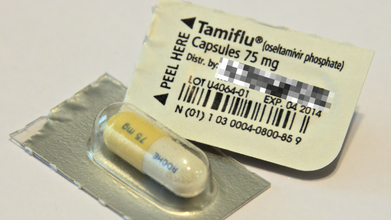- Health Conditions A-Z
- Health & Wellness
- Nutrition
- Fitness
- Health News
- Ayurveda
- Videos
- Medicine A-Z
- Parenting
Why Do You Go 'Weak in the Knees'?

Image Credit: Canva
The phrase "going weak in the knees" has been used to describe those intense moments of emotion—love, fear, or heartbreak. But what does it mean in terms of both the physical and emotional context? Is it simply a poetic metaphor or does it have roots in real physiological responses? Let's take a look at this fascinating mix of emotions, biology, and possible health implications.
The term "weak in the knees" goes back centuries. According to Grammarphobia, its etymology can be traced back to Bible translations where individuals who lacked spiritual stamina were said to have "trembling" or "feeble" knees. The term had become "weak knees" by the 1500s, which had become the physical expression of over-the-top emotion.
This eventually moved beyond being a biblical idiomatic expression that could be universally used to illustrate feelings of lightheadedness due to overwhelming emotions. A person standing on the edge of a cliff or hearing bad news or locking gazes with that loved one.
How Exactly Do Emotions Impact Human Body?
Intense emotions can bring about actual physiological changes, which is why people describe "weak knees" when experiencing such events.
Fight-or-Flight Response
The fight-or-flight response is the body's survival mechanism that it initiates when stressed. In a dangerous situation, the body releases stress hormones, including adrenaline and cortisol. These hormones:
- Divert blood flow to important areas, such as the brain and large muscles.
- Tense muscles in anticipation of action.
- Change blood pressure and blood sugar levels.
This reaction can cause feelings of dizziness, lightheadedness, or "shaky" legs. For instance, tense leg muscles might make one feel unstable, and a decrease in blood pressure may cause the legs to feel limp or cause a person to pass out. .
Role of Anxiety and Panic
Even though unsteadiness is not a medical symptom of anxiety, people often feel that way during a panic attack. Other symptoms that can create a sensation of knee weakness include shakiness, cold sweats, or dissociation—a feeling of being outside one's body. This relationship between emotions and physical responses illustrates how tightly the mind and body are linked.
Also Read: 10 Odd Signs Of Stress That You Thought You Knew But Don't
When Weak Knees Signal a Medical Issue
Weak knees can sometimes be an indication of an emotional response. However, at times, weak knees are symptoms of deeper physical issues. In most cases, when weak knees occur for long or too often, medical help is needed, since the issue might arise from a structural or systemic condition in the body.
The knee is the largest and one of the most complex joints in the body, which comprises the thighbone (femur), shinbone (tibia), and kneecap (patella). Its functionality relies on:
- Cartilage, which supports bones.
- Ligaments, which stabilizes.
- Quadriceps, the main muscles in the knee.
If any of these elements are affected, then there will be weakness in the knee.
Common Physical Causes of Weak Knees
1. Osteoarthritis: degeneration due to age, in which cartilage is degenerated, making the knee painful and unstable.
2. Quadriceps weakness: overuse or underuse of the quadriceps muscles causes loss of support for the knee.
3. Overuse injuries: commonly occurring in athletes, repetitive activities cause microtraumas leading to joint misalignment and weakening of tissues surrounding the joint.
Physical weakness in the knee often results from such factors as bad training techniques, poor recovery, or even certain underlying medical conditions, such as thyroid imbalances or blood sugar irregularities.
Emotional vs. Physical: Knowing the Signs
The setting in which knee weakness occurs is important to determine its cause.
Emotional Weakness: If knee instability occurs at times of high emotion or anxiety and resolves shortly thereafter, it is probably related to the body's stress response.
Physical Weakness: If symptoms persist beyond emotional episodes, it may be a sign of a medical condition that needs further investigation.
For instance, drops in blood pressure due to fright or pain might cause temporary weakness in the knees. On the other hand, prolonged symptoms may imply something more severe, such as nerve damage or a degenerative joint condition.
Managing and Preventing Knee Weakness
For anyone who suffers from weak knees, the first priority is to tackle the root cause. Here are some strategies for emotional and physical cases:
- Deep breathing, meditation, or mindfulness, it regulates the stress response in the body.
- Exercise improves balance, reduces anxiety, and forms a strong relationship between the mind and the body.
- Diagnosis of a condition like an injured ligament or an imbalance of muscle is determined by an orthopedist or physical therapist.
- An exercise targeting quadriceps and related muscles helps enhance the stability in the knee joint.
- Rest and proper form are essential for preventing overuse injuries in athletes.
The phrase “weak in the knees” is a testament to the profound connection between our emotions and physical experiences. Whether describing the flutter of love, the shock of bad news, or the physiological effects of stress, it encapsulates moments where the mind and body converge.
Understanding the cause, trigger, and implications of this phenomenon makes it more complex and understandable. Whether it is a transient emotional response or a sign of a medical issue, going "weak in the knees" reminds us of the delicate balance between our emotional and physical selves.
Five Essential Health Tests to Consider This Winter, According To A Doctor

Credits: iStock
Winter in India is often associated with sardio ke laddoo, but also with increasingly sedentary lifestyle, worsening air pollution, all of which leads to more time spending home than to going out, taking a stroll, working out and more. This is why as winter sets in, India also sees a quiet but consistent rise in non communicable diseases, or NCDs, conditions that now account for nearly two thirds of all deaths in the country. Heart disease, diabetes, thyroid disorders, fatty liver disease and arthritis continue to rise across age groups, driven by sedentary lifestyles, dietary excess and delayed diagnosis.
Winter can further aggravate these risks. Physical activity drops, calorie dense foods become routine, sunlight exposure reduces and metabolism changes. Studies and hospital data in India have repeatedly shown that heart attacks and strokes tend to spike during colder months. Blood vessels constrict, blood viscosity increases and cholesterol levels often rise. Blood sugar control also becomes more challenging, while joint pain and stiffness worsen for many.
Dr. Mayanka Lodha Seth, Chief Pathologist at Redcliffe Labs, says the problem is not seasonal food but seasonal neglect. “Traditional winter foods are not harmful on their own. The real risk comes from consuming them without understanding what is happening inside the body,” she explains. “Winter tends to mask symptoms while quietly worsening internal imbalances.”
With India already home to over 100 million people living with diabetes and a similar number estimated to be prediabetic, preventive testing becomes crucial. Doctors recommend five key tests that can offer a clearer picture of health before winter indulgence begins.
Blood Sugar Levels
Diabetes is one of the fastest growing NCDs in India, and a large proportion of cases remain undiagnosed. Winter diets high in sugar and fat can trigger frequent glucose spikes. Testing fasting blood sugar and HbA1c helps identify early risk and prevents long term complications affecting nerves, kidneys and the heart.
Lipid Profile
High cholesterol is a major contributor to cardiovascular disease, which remains India’s leading cause of death. Reduced activity in winter often pushes lipid levels higher. A lipid profile helps assess heart risk and guides dietary and lifestyle moderation before damage sets in.
Liver Function Test
Non alcoholic fatty liver disease is increasingly common in India, even among younger adults. Excess sugar and fat intake during winter can worsen liver fat accumulation. Early liver testing can flag reversible changes before they progress to chronic liver disease.
Thyroid Function Test
Thyroid disorders affect millions in India, especially women, and often go unnoticed. Symptoms like weight gain, fatigue and cold intolerance are frequently brushed off as winter sluggishness. A simple thyroid test helps distinguish seasonal lethargy from hormonal imbalance.
Vitamin D and Vitamin B12 Levels
Vitamin D deficiency is widespread due to limited sun exposure in winter, while Vitamin B12 deficiency remains common because of dietary patterns. Both deficiencies are linked to low immunity, muscle pain, bone weakness and worsening joint discomfort.
Dr. Seth adds, “Preventive diagnostic testing allows people to make informed choices. It helps them enjoy winter foods in moderation without unknowingly worsening an underlying condition.”
As NCD related healthcare costs continue to rise in India, early testing offers both health and financial protection. Winter comfort does not have to come at the cost of long term health. Staying informed may be the most effective preventive step this season.
Tamiflu Isn't The Only Flu Medicine, Expert Shares Other Alternative

Credits: iStock
Flu season is hitting hard this year, and the symptoms could feel relentless. People are suffering from rising fever, hacking cough, blocked and stuffy nose and sore throat. While many people get relief from Tamiflu, which is a prescribed antiviral medication that is used to treat or even to prevent illness, there are other alternatives available too.
Dr Ari Brown, a Texas based pediatrician and the author of Baby411 book series told CNN health that one of the most common complaints that she gets to hear from Tamiflu is vomiting. A 2023 study published in the Pediatric Infectious Disease Journal notes that 18% of people experienced vomiting with Tamiflu, as compared to 5% with Xofluza, an alternative.
“I’ve also had a few pediatric patients experience moodiness with Tamiflu, which is reported in the literature,” she said.
Read: Adenovirus Cases Rise In UK, Health Authorities On Alert
Tamiflu is usually gives to treat flu in people ages 2 weeks and older and to reduce the chance of getting the flu in people 1 year and older. The medicine could be administered in both form, liquid and capsules and usually taken twice daily for five days straight. This is prescribed for when flu is to be treated. However, when used for prevention, it is typically taken once for 10 days.
What Are The Other Alternatives Available For Flu Treatment?
Xofluza: It is administered as a single dose tablet and is approved for ages 5 and older. This medicine can also be used to treat or to prevent the flu. While it costs nearly $200 for those without insurance, eligible patients can use coupons to lessen costs. Dr Brown points out that this medicine could have side effects like diarrhea and vomiting. However, the study aforementioned notes that for this, only 5% patients had vomiting symptoms, when compared with Tamiflu.
Dr Brown also said that Xofluza can stop viral shedding in one day, while Tamiflu could take up to three days. "Both antivirals will help reduce the duration of misery by couple of days," she pointed out.
Dr Brown also pointed out that overall, "Xofluza is rising in popularity over Tamiflu." “One dose. Fewer side effects. More insurances are covering the cost of it now and manufacturer coupon makes it less expensive than in previous years," she said.
Rapivab: This is another prescribed medication that is approved to treat flu. This could be administered for people ages 6 months and older. It has to be given by a health care provider, as it is given once as an intravenous infusion. It could cost up to $1,000 without insurance and most common reaction in adults is diarrhea.
Relenza: This flu medication is inhaled in powder form. It is administered through an inhaler device, which is to be used twice a day for five days straight. The prescribed drug is approved to treat flu in ages 7 and older and for preventative use, in ages 5 and older. It could cost about $90 without insurance.
It may have side effects like dizziness, allergic reaction, or irritation of the nose. It is not recommended for people who have breathing issues or have asthma.
How To Cure Hangover Headache At Home?

Credits: Canva
Hangover headaches are miserable. Most people know that drinking too much alcohol can leave you with a long list of next-day problems, and a headache is one of the most common. You will find no shortage of so-called hangover headache “fixes” online, in home remedies, and even on store shelves. The problem is that very few of them are backed by solid scientific evidence. The surest way to prevent a hangover headache is to watch how much alcohol you drink at one time. That said, there are a few simple, home-based steps that may lower your risk of waking up with a headache, and some practical ways to manage the pain if it has already set in.
What Is A Hangover?
A hangover refers to the uncomfortable physical and mental effects you experience after drinking too much alcohol the night before. According to the Cleveland Clinic, hangovers are extremely common among people who overdrink. One study found that nearly 75% of people who consumed excessive alcohol reported hangover symptoms the following day. The same research suggested that about 25% to 30% of drinkers may not experience hangovers at all.
How Much Alcohol Does It Take To Get A Hangover?
Drinking more than one alcoholic beverage per hour can lead to a hangover. Your body generally needs about an hour to break down and process a single drink. As explained by the Cleveland Clinic, one drink is roughly equal to:
- One 12-ounce can of regular or light beer (5% alcohol).
- Half a pint, or about 8 to 9 ounces, of malt liquor or many craft beers (7% alcohol).
- One 5-ounce glass of table wine (12% alcohol).
- One shot, or 1.5 ounces, of liquor (40% alcohol).
How To Cure Hangover Headache At Home?
Many products and home remedies claim they can cure a hangover, but most are not supported by science, and some may even do harm. For instance, having more alcohol the next morning does not fix a hangover. It simply adds more toxins to your system.
Instead, consider these self-care measures for hangover relief:
- Eat simple foods with complex carbohydrates, such as toast or crackers. These can help raise low blood sugar levels and ease nausea.
- Drink plenty of fluids. Water, electrolyte drinks like Gatorade® or Pedialyte®, broth, and other non-alcoholic beverages can help counter dehydration. A good sign you are rehydrated is when your urine becomes clear.
- Get adequate sleep to help your body recover from fatigue.
- Use antacids to calm stomach discomfort.
Consider aspirin or other nonsteroidal anti-inflammatory drugs (NSAIDs) such as ibuprofen or naproxen to relieve aches and pains. NSAIDs are generally the most effective medications for hangover-related pain, but they should be used cautiously because they can irritate your stomach. Avoid acetaminophen (Tylenol), as combining it with alcohol can damage your liver.
Give it time. Hangover symptoms usually improve within eight to 24 hours. During this period, your body works to eliminate alcohol toxins, restore hydration, repair tissues, and return normal body functions to baseline.
© 2024 Bennett, Coleman & Company Limited

